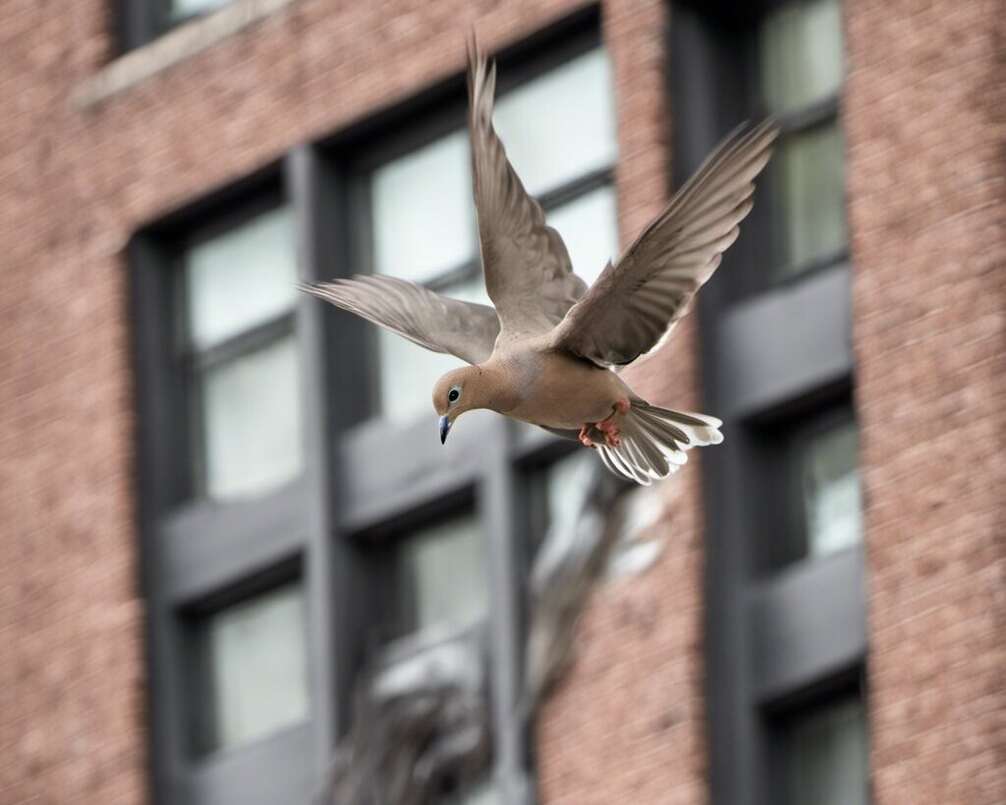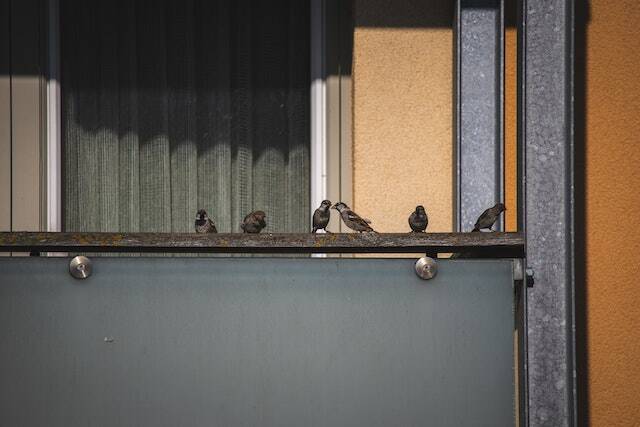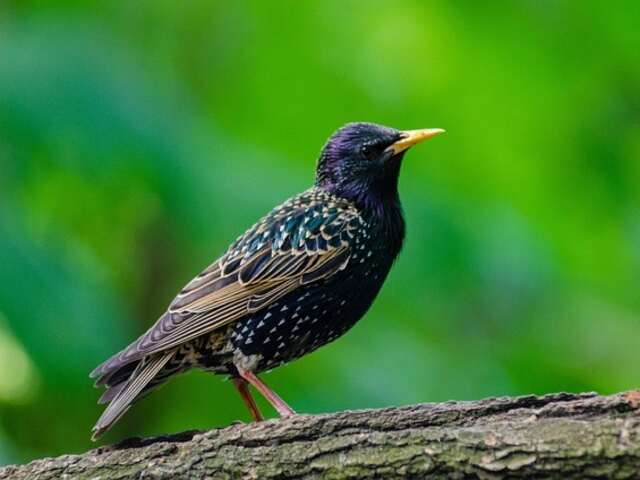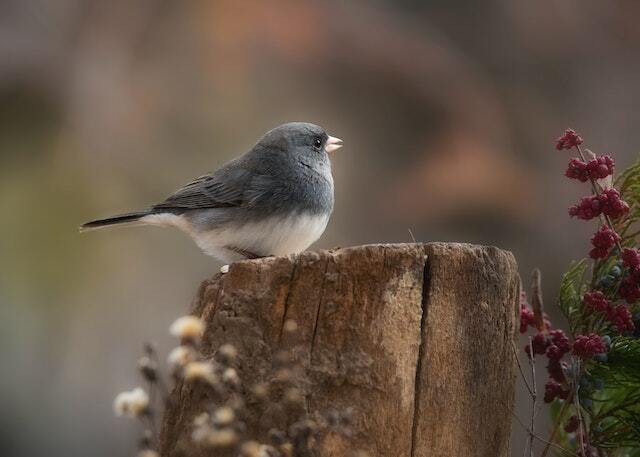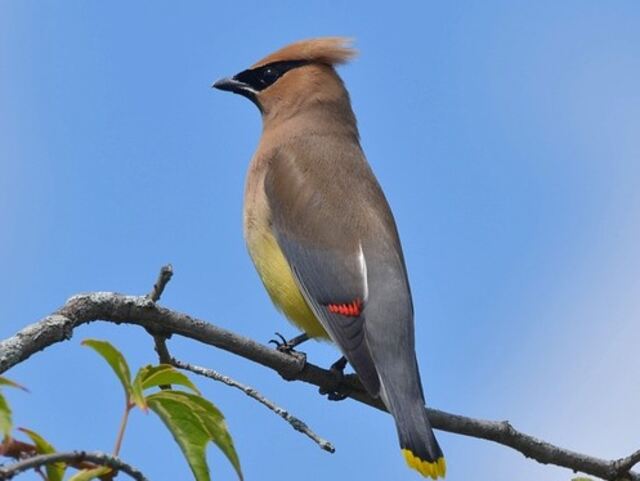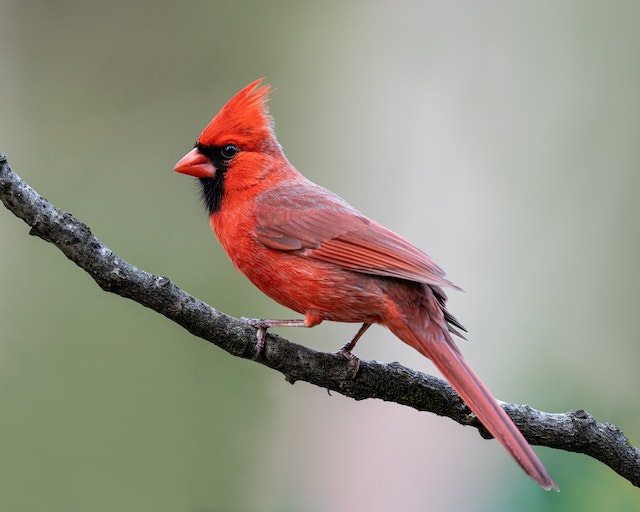Have you ever had a bird fly into your window? It can be a startling experience, but it’s not uncommon. While some may think it’s just a random accident, others believe there is more to it than meets the eye.
In this article, we will explore the potential symbolism and superstitions behind birds hitting windows. We will also delve into the scientific explanations and ways to prevent these incidents from happening.
Table of Contents
- 1 Key Takeaways:
- 2 What Does It Mean When A Bird Hits Your Window?
- 3 The Superstitions Surrounding Birds Hitting Windows
- 4 Symbolic Meaning of Birds Hitting Windows
- 5 Bird Hitting Window: Good Luck or Bad Omen?
- 6 The Science Behind Birds Colliding with Windows
- 7 Preventing Birds from Hitting Windows
- 8 When to Seek Professional Help
- 9 Common Bird Species Prone to Window Collisions
- 10 Documenting and Reporting Bird Strikes
- 11 Myths vs. Facts: Debunking Bird Window Collision Misconceptions
- 12 Conclusion
- 13 FAQs: What Does It Mean When A Bird Hits Your Window?
- 13.1 What does it mean when a bird hits your window?
- 13.2 What are the superstitions surrounding birds hitting windows?
- 13.3 What is the symbolic meaning of birds hitting windows?
- 13.4 Is a bird hitting a window considered good luck or a bad omen?
- 13.5 What are the scientific explanations for birds colliding with windows?
- 13.6 How can I prevent birds from hitting windows?
- 13.7 When should I seek professional help for a bird hitting a window?
- 13.8 Which bird species are more prone to window collisions?
- 13.9 Why is documenting and reporting bird strikes important?
- 13.10 What are some common misconceptions about bird window collisions?
- 14 Author
Key Takeaways:
- There are various beliefs and superstitions about birds hitting windows.
- Birds hitting windows may have symbolic meanings in different cultures and belief systems.
- The scientific explanations for birds hitting windows include reflection, territorial behavior, and migration patterns.
- Preventive measures can be taken to minimize the risk of bird window collisions.
What Does It Mean When A Bird Hits Your Window?
If a bird hits your window, it can be a startling experience. Some believe it is a sign of bad luck, while others think it is a message from the spirit world. However, in reality, birds often fly into windows because they see a reflection of the sky or trees and think it is a clear path to fly through.
This can be dangerous for the bird and can result in injury or death. To prevent this from happening, you can place decals or stickers on your windows to make them more visible to birds. Additionally, placing bird feeders away from windows can also help prevent collisions.
The Superstitions Surrounding Birds Hitting Windows
For centuries, people worldwide have associated birds hitting windows with various superstitions and beliefs. Some consider it a sign of impending death, while others view it as a message from the spirit realm. While there is no concrete evidence to support these beliefs, they continue to persist in different cultures around the world.
One of the most common superstitions about birds hitting windows is that it signifies a warning of impending doom or death. In some cultures, it is believed that the bird brings a message from a deceased loved one, warning the person of an upcoming tragedy or misfortune. Others believe that the incident is a sign of good luck or that the bird is a spirit guide trying to communicate with them.
Scientifically, birds sometimes hit windows because they cannot see the glass and perceive the reflection as an open space. Sometimes, the bird may be flying too fast and cannot avoid the window. Some birds may hit windows because of territorial behavior or during migration patterns.
Despite the superstitions, many bird enthusiasts believe that bird-window collisions represent a serious problem that requires immediate attention and preventive measures. Such collisions can cause injuries to the bird or even death, which is why it is crucial to prevent them from happening in the first place.
To understand the reasons behind bird-window collisions, it is essential to look beyond superstitions and delve into scientific explanations. While some may see birds hitting windows as a message from the spirit world, there may be a more straightforward explanation that highlights the need for protective measures.
Symbolic Meaning of Birds Hitting Windows
While many people associate bird window collisions with superstitions, there are also symbolic interpretations and spiritual meanings attributed to this phenomenon in various cultures and belief systems.
In some belief systems, birds are considered messengers from the spirit realm, and hitting a window may signify an important message or communication from the spiritual world. Depending on the species of bird and the specific circumstances surrounding the collision, some people believe that it may be a sign of good luck or a positive change in one’s life.
Alternatively, hitting a window may be seen as a warning or a negative omen. In some cultures, certain bird species are believed to be harbingers of death or may signify impending tragedy or misfortune.
Some spiritual practitioners believe that the symbolic meaning of a bird hitting a window varies depending on the direction from which the bird approached the window. For example, a bird hitting a window while flying towards it may symbolize a blockage or obstacle in one’s path, while a bird hitting a window while flying away from it may be interpreted as a sign of impending departure or separation.
Overall, the symbolic interpretation of birds hitting windows varies greatly depending on cultural and spiritual beliefs. While some see it as a sign of good luck or an important message, others view it as a warning or a negative omen.
Bird Hitting Window: Good Luck or Bad Omen?
The belief that a bird hitting a window brings good luck or is a bad omen is rooted in superstition and varies across different cultures and traditions. Some believe that a bird hitting a window is a sign of impending death or misfortune, while others see it as a message from the spiritual realm or a call to pay attention to one’s surroundings.
In Native American cultures, a bird hitting a window is believed to represent a message from the spirit world. Depending on the type of bird, the message may be one of warning, encouragement, or guidance.
Similarly, in Chinese culture, a bird hitting a window is associated with a message from the gods. Depending on the direction the bird was flying and the time of day, the message could be either positive or negative.
However, in some cultures, a bird hitting a window is considered a neutral event with no specific meaning attached to it. It is simply seen as an unfortunate accident for both the bird and the window.
Overall, whether a bird hitting a window is seen as a good or bad omen depends on the individual’s cultural and personal beliefs. Regardless of personal beliefs, it is important to take precautions to prevent birds from colliding with windows and protect both the birds and the windows themselves.
The Science Behind Birds Colliding with Windows
Have you ever wondered why birds fly into windows? Despite being a common phenomenon, it can be distressing to witness. However, there are scientific explanations for why birds collide with windows.
One reason is due to the reflection of trees and sky in windows, which can confuse birds and make them think they are flying towards open space. This is especially true during mating season when birds may become territorial and aggressive towards their own reflection.
Another reason is due to the migration patterns of birds. During migration, birds can become disoriented and exhausted and may collide with windows in their confusion. Additionally, birds may be thrown off course by artificial light, such as streetlights and buildings, which can affect their navigation.
Finally, it’s important to note that many bird species have eyes positioned on the sides of their heads, which allows them to have a wider field of vision but can also make it more difficult to judge distances accurately.
In order to prevent birds from colliding with windows, it’s important to take steps such as installing bird deterrents, closing blinds or curtains, and avoiding placing bird feeders or baths close to windows.
Preventing Window Collisions
There are many effective methods for preventing birds from colliding with windows:
- Install window decals or bird tape to make windows more visible to birds
- Use screens or netting to create a barrier between birds and windows
- Apply a reflective film to windows to reduce reflection
- Move indoor plants away from windows to reduce the appearance of indoor foliage from outside
- Install external shutters or awnings to reduce the amount of light reflected from windows
By taking proactive steps to prevent window collisions, you can help protect both birds and windows.
Preventing Birds from Hitting Windows
Birds are an essential part of our ecosystem, and it is our responsibility to protect them. Here are some methods to prevent birds from hitting windows:
- Use window decals or stickers that create a pattern or visual barrier to indicate the presence of a solid object.
- Install external shutters or screens on windows to reduce reflection and the risk of collisions.
- Close curtains and blinds during daylight hours to prevent birds from seeing through windows.
- Position bird feeders and baths away from windows so that birds are not tempted to fly into them.
- Install ultraviolet-reflective window film, which is visible to birds but not to humans.
These methods will help prevent birds from colliding with windows, reducing the risk of injury or death to both birds and windows.
When to Seek Professional Help
If you come across a bird that has hit your window and appears to be injured, it is important to take appropriate action. While some birds may recover quickly and fly off, others may require medical attention. In some cases, emergency assistance may be necessary.
If the bird is unconscious or has difficulty breathing, it is considered an emergency and requires immediate attention. Contact your local wildlife rehabilitation center or animal control services for assistance. They will provide guidance on how to handle the bird and transport it safely to the nearest facility.
For less severe injuries, it is recommended to observe the bird from a distance to see if it recovers naturally. If the bird shows signs of distress, such as labored breathing or inability to stand, it may require professional veterinary care. In such cases, contact a licensed wildlife rehabilitator or veterinarian for assistance.
It is essential to handle injured birds with care and avoid causing further harm. Wear protective gloves and avoid touching the bird’s wings or beak. Gently place the bird in a ventilated box and keep it warm until help arrives.
If the bird appears to have recovered and is ready to fly again, ensure there are no obstacles in the way and that the bird has a clear path to safety. It is recommended to wait until the bird has regained its strength before releasing it back into the wild.
Common Bird Species Prone to Window Collisions
Birds are fascinated with windows, and they can often perceive the glass as a safe passage or a clear opening. While window collisions can happen to any bird species, there are certain birds that are more prone to these incidents due to their specific characteristics.
| Bird Species | Characteristics |
|---|---|
| American Goldfinch | Small size and high speed |
| Dark-eyed Junco | Ground feeder and habit of flying close to the ground |
| Ruby-throated Hummingbird | Fast flight and hovering behavior |
| White-throated Sparrow | Ground feeder and habit of hopping rather than walking |
| Yellow-rumped Warbler | Fast flight and foraging in flocks |
It is important to note that different regions may have different bird species more prone to window collisions, depending on their local habitat and migration patterns.
Knowing which bird species are more likely to collide with windows can help you take preventive measures to reduce the risk of such incidents.
Documenting and Reporting Bird Strikes
Documenting and reporting bird strikes is crucial for understanding the scale and impact of these incidents on bird populations and ecosystem health. By collecting data and analyzing patterns, scientists can identify potential causes and develop proactive measures to prevent bird-window collisions.
If you witness or find a bird that has struck a window, it is important to document as much information as possible, including the date, time, location, and species of the bird. If the bird is injured or deceased, handle it with care and contact a wildlife rehabilitation center or a professional ornithologist for assistance.
In addition, reporting bird strikes to local or national conservation organizations can provide valuable information for research and conservation efforts. Many organizations, such as the American Bird Conservancy, have programs in place for tracking and documenting bird-window collisions. You can also use the Cornell Lab of Ornithology’s Project FeederWatch to report incidents and contribute to ongoing research on bird populations.
By taking the time to document and report bird strikes, you can make a valuable contribution to our understanding of these incidents and help protect bird populations for future generations.
Myths vs. Facts: Debunking Bird Window Collision Misconceptions
There are many misconceptions surrounding birds hitting windows, but not all of them are true. Here are some common myths about bird window collisions and the real facts:
- Myth: Birds hit windows because they are suicidal.
- Myth: Birds only hit windows during migration season.
- Myth: Birds only hit windows in urban areas.
- Myth: Putting decals on windows always prevents bird strikes.
- Myth: Birds that hit windows always die from their injuries.
It’s important to separate fact from fiction when it comes to bird window collisions. By understanding the true causes and consequences of these incidents, we can take effective measures to prevent them and protect our feathered friends.
Conclusion
In conclusion, birds hitting windows have fascinated and intrigued people for centuries. While some view it as a bad omen, others consider it a sign of good luck.
However, regardless of the superstitions surrounding this phenomenon, it is important to understand the potential risks and effects it can have on both the birds and the windows.
By exploring the science behind why birds collide with windows, we can take proactive steps to prevent these incidents and minimize the risks of injury to both the birds and structures.
Documenting and reporting these strikes can also contribute to research efforts and conservation initiatives aimed at protecting bird populations.
Through this article, we have uncovered the various superstitions, symbolic interpretations, and scientific explanations behind birds hitting windows.
We have also addressed common misconceptions and provided effective methods to prevent these incidents from occurring. Ultimately, it is up to us to take responsibility and protect the wildlife that surrounds us.
FAQs: What Does It Mean When A Bird Hits Your Window?
What does it mean when a bird hits your window?
The significance behind birds hitting windows can vary depending on cultural beliefs and personal interpretations. While some consider it to be a positive sign or symbolic message, others see it as an unfortunate occurrence with no deeper meaning.
What are the superstitions surrounding birds hitting windows?
Various superstitions and beliefs exist around birds hitting windows. Some cultures believe it is a sign of impending death, while others see it as a message from departed loved ones or a warning of upcoming changes in life.
What is the symbolic meaning of birds hitting windows?
Symbolic interpretations of birds hitting windows differ across cultures. Some see it as a spiritual message or a sign of transformation and growth, while others associate it with bad luck or negative energy.
Is a bird hitting a window considered good luck or a bad omen?
The perception of whether a bird hitting a window brings good luck or is a bad omen varies. Some believe it signifies good fortune or a positive event, while others view it as a warning of potential danger or ill fortune.
What are the scientific explanations for birds colliding with windows?
Birds may collide with windows due to factors such as reflection, mistaken identification of transparent surfaces, territorial behavior, or disorientation caused by artificial lighting. Migration patterns can also contribute to window collisions.
How can I prevent birds from hitting windows?
There are several effective methods to prevent birds from hitting windows, such as applying window decals or films, installing window screens or netting, placing bird feeders away from windows, and using external shading devices.
When should I seek professional help for a bird hitting a window?
If a bird is injured, unable to fly, or shows signs of distress after hitting a window, it is advisable to contact a wildlife rehabilitation center or a local animal control agency for assistance.
Which bird species are more prone to window collisions?
Some common bird species that are more prone to window collisions include sparrows, finches, robins, hummingbirds, and woodpeckers. Their behaviors, such as aggressive territorial disputes or attraction to reflections, contribute to these incidents.
Why is documenting and reporting bird strikes important?
Documenting and reporting bird strikes can contribute to research efforts and conservation initiatives. It helps scientists understand the patterns and risks associated with window collisions, leading to the development of effective preventive measures.
What are some common misconceptions about bird window collisions?
There are several misconceptions about bird window collisions, such as birds intentionally flying into windows to commit suicide or believing that decals alone can completely prevent collisions. Understanding the facts can promote a better understanding of these incidents.

